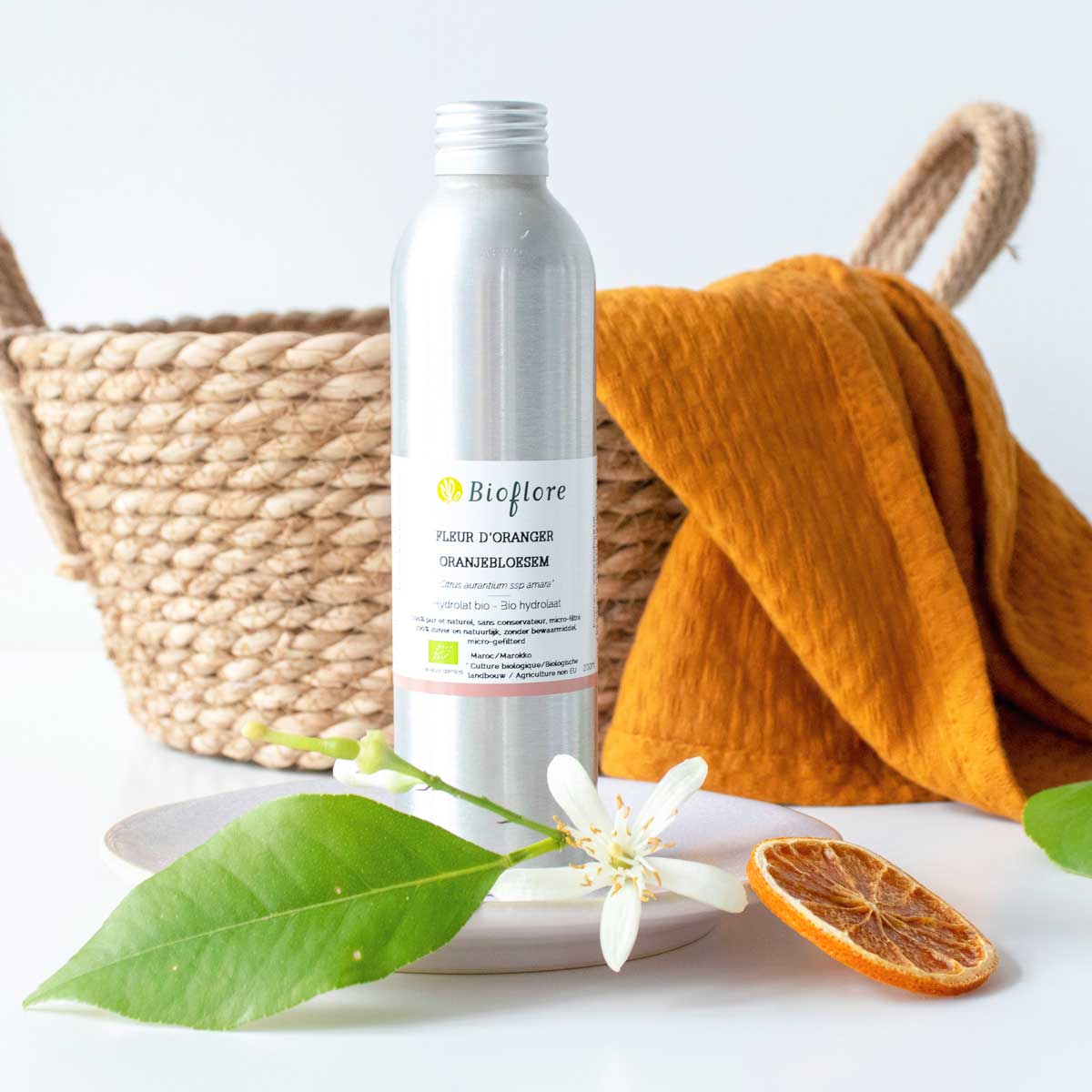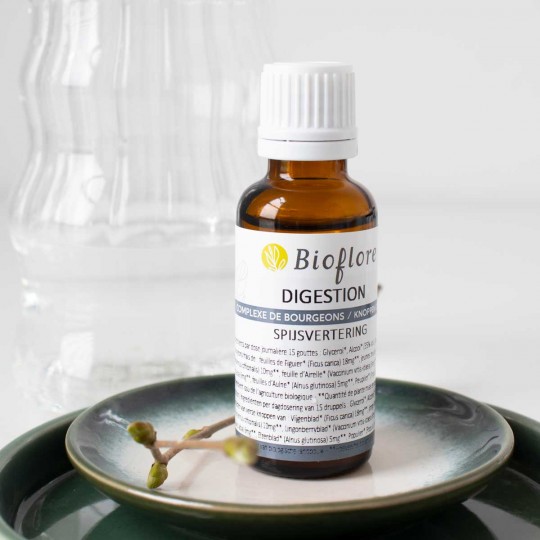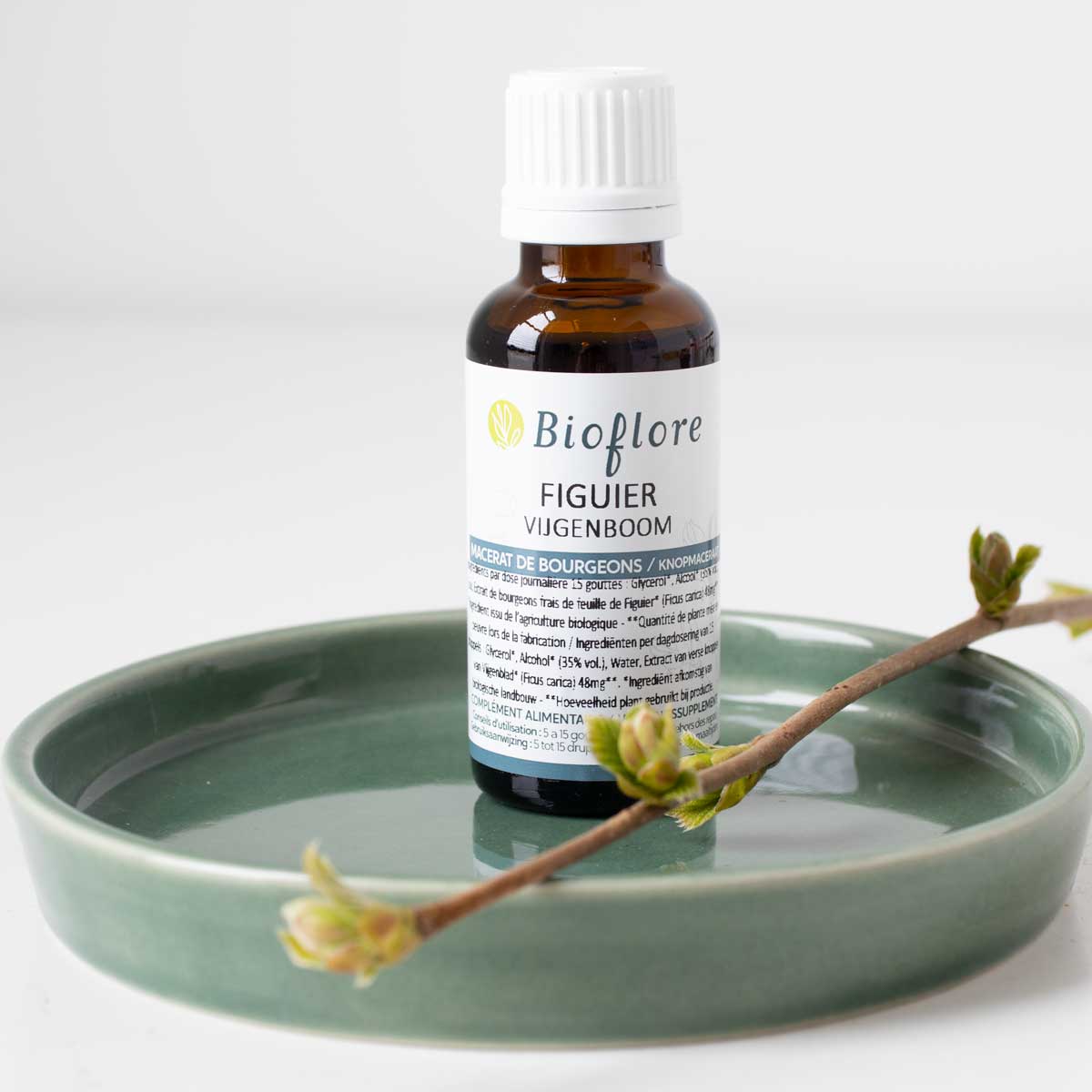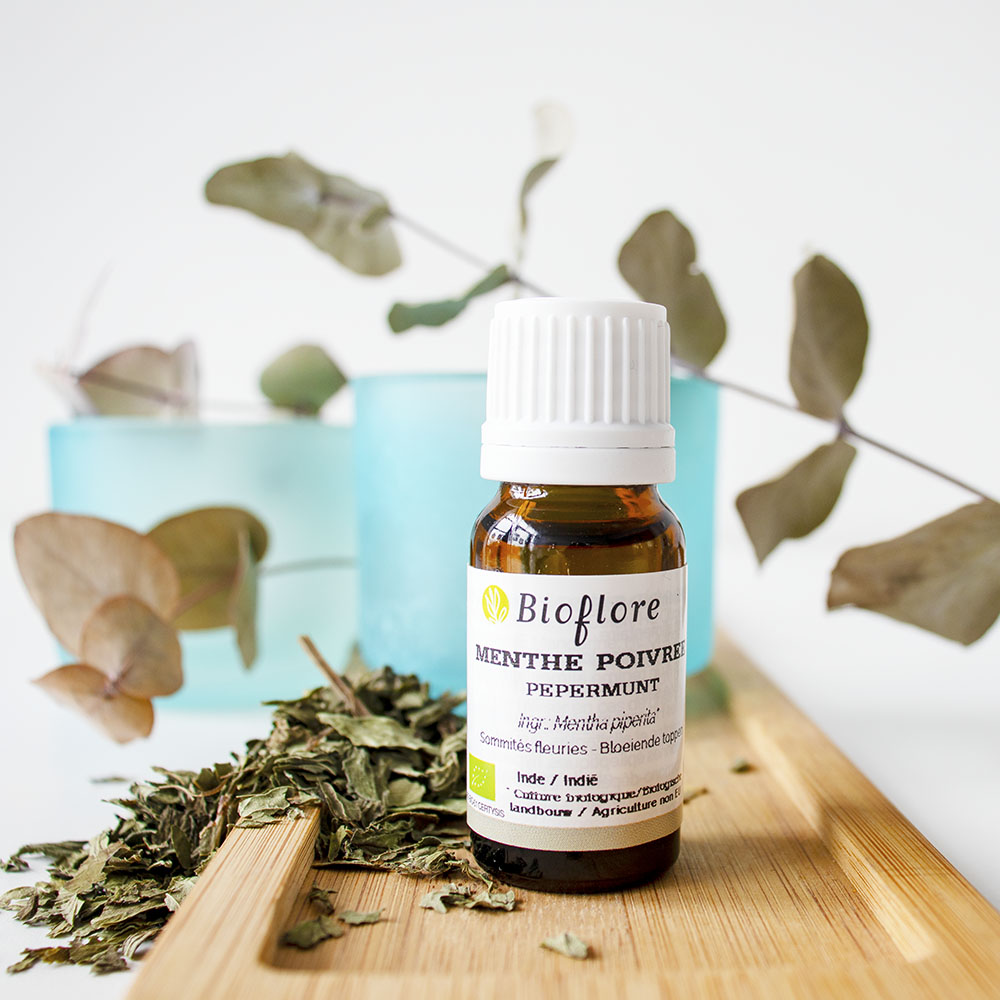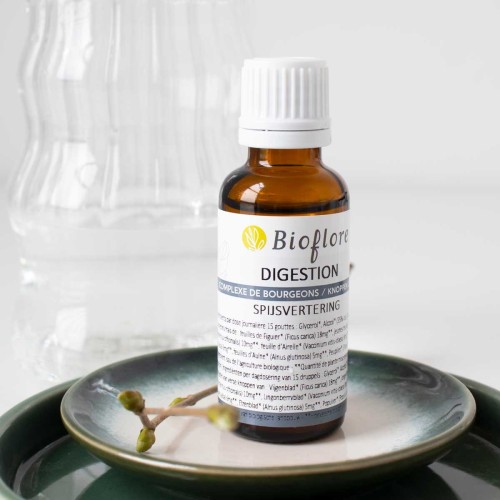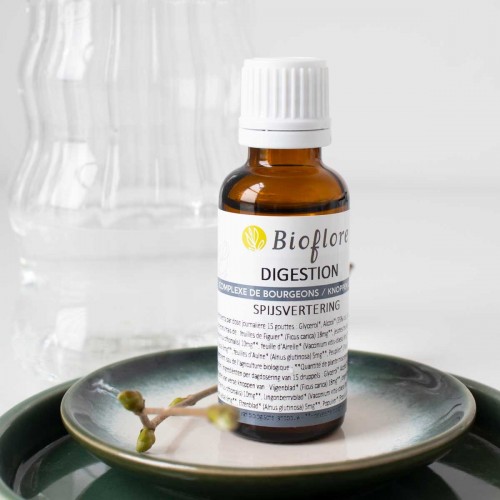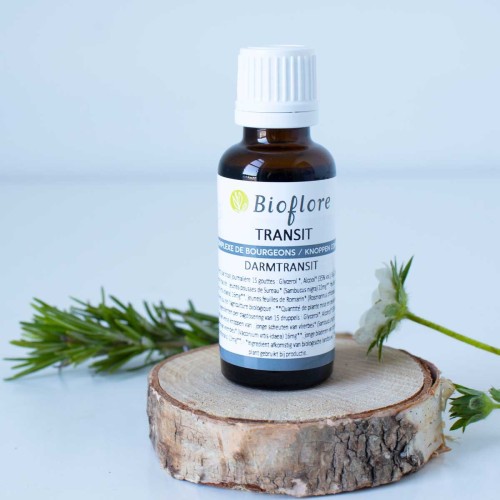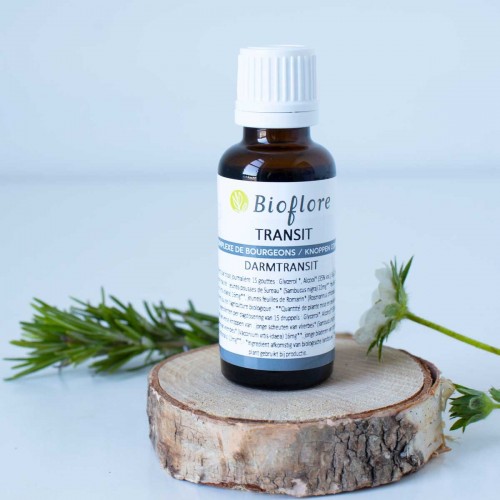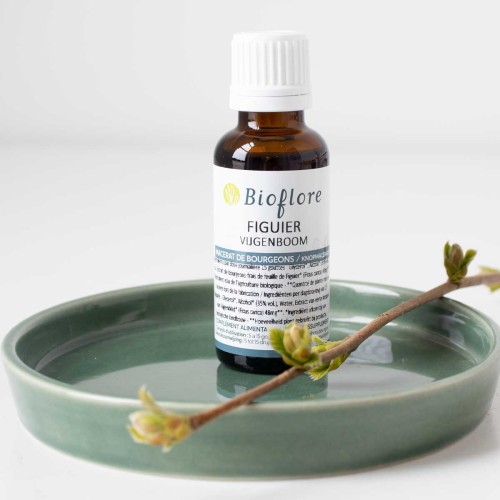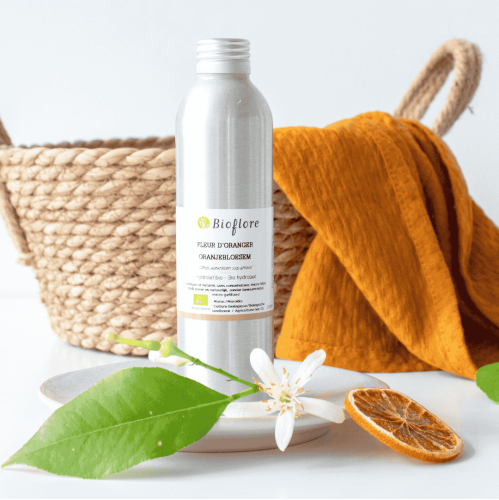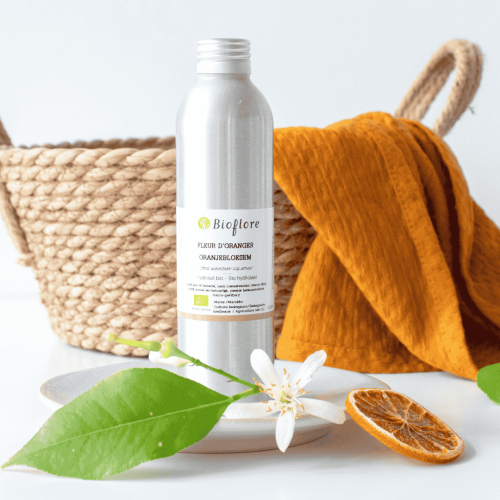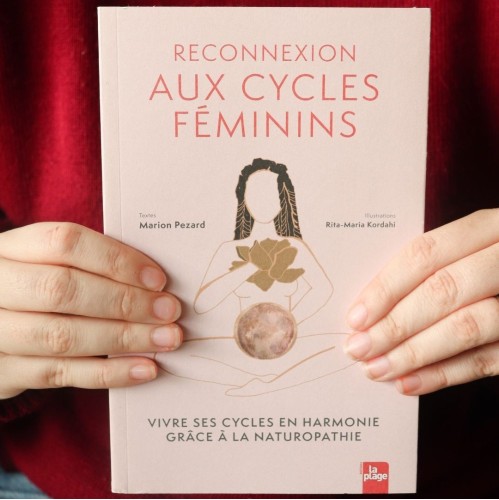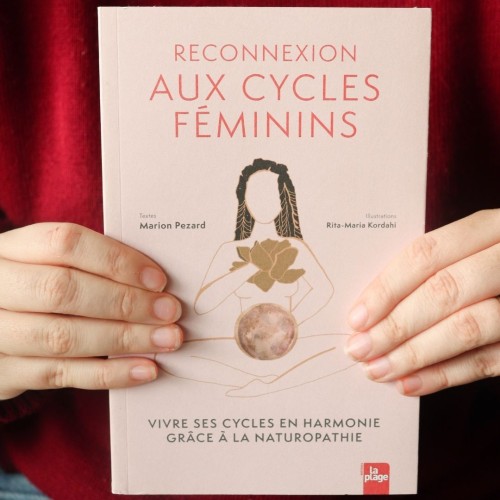You've probably already heard it said that our digestive system is our second brain, and it's true that it's one of our body's central systems.
Firstly, because we have more neurons around the intestines than in the brain, and these communicate directly with the central command via the vagus nerve. So it's easy to see how the state of our digestion affects our mental state - crazy, isn't it?
Our intestine is also the seat of our immunity, as well as a barrier between the food bolus, i.e. what we eat, and our bloodstream, i.e. what will actually enter our body, or what will leave via our faeces.
What's more, it's estimated that digestion takes up 70% of our energy, which makes it a particularly energy-intensive activity, all the more so when you have trouble digesting!
So many reasons to pamper our digestion, and for that, plants are our allies! Here's an overview of the most common problems, and some natural solutions.
An article by Marion Pezard, naturopath and creator of the Healthyliving podcast
How to have good digestion? Advice from a naturopath
First and foremost, it's important to remember that the mouth, and therefore chewing and swallowing our food, is the 1st stage of digestion in our body. So, for the rest to go smoothly, it's vital to start by chewing sufficiently. Here's a little advice: eat quietly at your table and put your cutlery down between each bite.
Another essential point for good digestion is to relieve stress. Stress tends to disrupt digestion in the stomach and slow down intestinal peristalsis (the movement of stools through the intestines).
To counteract this, you can take a few deep, belly breaths before sitting down to eat and, if necessary, make yourself a digestive and soothing infusion throughout the day with, for example, peppermint leaves, Roman chamomile flowers, mallow flowers and a little grated fresh ginger. For the dosage, bear in mind that you shouldn't use more than 30g of plants per litre of water, or a maximum of 10g per cup.
Another recipe much appreciated by people who are stressed and have delicate digestion is Lebanese white coffee. Here is a simple recipe from my book "Reconnexion aux Cycles Féminins". Mix 1 teaspoon of orange blossom hydrosol with a cup of hot water and add a little honey or wholemeal sugar if you like.
Slow transit, constipation and bloating: what natural treatments are there?
If you suffer from slow transit, a tendency to constipation (the norm is to have a bowel movement once or twice a day; if you have less frequent bowel movements, you are considered to be suffering from constipation), or a stomach that swells and can sometimes be painful after certain meals, here are a few tips to help you.
1/ Drink 1.5 litres of water a day
First of all, the main thing is to make sure you drink enough: at least 1.5 litres of still water a day. The body always aims to maintain a sufficient quantity of water in the body, and if it doesn't have enough, it will pump water into the stools in the rectum to make sure it has enough. This has the perverse effect of drying out the stools and making them harder to eliminate. So get yourself a nice water bottle and make sure you take it with you wherever you go so you remember to drink enough!
2/ Self-massage of the stomach
If a balanced diet rich in soft fibres (mainly cooked vegetables) and optimal hydration isn't enough, then you can try self-massage of the stomach. It's obviously easier to do if you're at home, but there's nothing to stop you making up a little emergency bottle or roll-on to keep in your bag or drawer in case you need it.
The movements are simple: clockwise circles, starting from the navel and gradually widening outwards.
You can use a simple vegetal oil that you warm in the palm of your hand, and if you wish, add 3 drops of exotic basil essential oil and 2 drops of fine lavender essential oil for 1 tablespoon of vegetable oil.
Precautions for use
Always check the contraindications before using any essential oil. This advice is for adults only, excluding pregnant and breast-feeding women.
3/ Gemmotherapy: buds for transit and digestion
Plant buds can also be your allies in the case of transit disorders, to support the body's elimination functions. For example, you can use rosemary, elderberry and bilberry buds, which you'll find in synergy in the Transit complex.
If all that isn't enough, in certain cases you can suggest taking a tablespoon of vegetable oil on an empty stomach, such as olive or coconut oil, to unblock transit by activating the secretion of bile by the gall bladder in the duodenum, thus helping to move the stools towards the exit.
While this may provide short-term relief, it does not solve the problem for good, so remember to chew your food well, keep well hydrated, take care of your stress and eat plenty of fibre before anything else.
Heartburn, acid reflux and digestive heaviness
For other people, it's more likely to be the upper part of the digestive system that is affected, with difficulties around the stomach area: heartburn or acid reflux, digestive heaviness or even pain in the solar plexus.
In these cases, stress really does play a role, so the advice to eat calmly, slowly, chew and breathe deeply before and during a meal is more important than ever.
You should also take care to drink before meals to avoid diluting the digestive juices. You can, of course, rinse your mouth out at the table, but avoid drinking half a litre with each meal - do it after meals if possible.
What natural solutions are there to soothe GERD?
1/ Fig tree bud macerate and Digestion complex
Here again, plants can help, particularly Fig bud macerate, which is the king of stomach health remedies because it not only acts on heartburn but also on its main cause, which is stress.
It can be taken on its own, 5 drops 3 times a day in a little water, 15 minutes before each meal, as a 3-month course of treatment with a one-week break every 3 weeks.
Fig bud is also found in the Digestion Complex, in synergy with bilberry, rosemary, silver fir, alder and poplar.
2/ The Peppermint reflex on an occasional basis
Another plant that can help you temporarily, this time in the form of an essential oil, is peppermint. Be careful, this essential oil is very strong and there's no question of pouring one or more drops on your tongue. It is used here in the form of a trace, i.e. a single drop that you place on your finger or the top of your hand and then lick off. Believe me, it's powerful enough as it is!
This essential oil has a number of contraindications and should be used with the utmost caution. It should be reserved for adults only and is strictly forbidden to pregnant or breast-feeding women and children. See the precautions for use at the bottom of this article.
3/ Infusions of chamomile flowers
To relieve digestive discomfort and acid reflux, you can also prepare an infusion of chamomile flowers (German chamomile), which have digestive, anti-inflammatory, stomachic and anti-spasmodic properties.
Just pour 1 tablespoon of flowers into 1 litre of boiling water, leave to infuse for a long time (for up to an hour), then filter and enjoy. You can drink a cup after each meal.
Marion's advice
Finally, don't hesitate to visit your osteopath and tell him or her about these difficulties. He or she will undoubtedly check that your cardia (the little valve that closes the stomach) is working properly and that it is not blocked by the diaphragm (again, often due to sub-optimal breathing).
If, despite everything, this persists, it's worth investigating further to make sure there isn't a lack of hydrochloric acid in the stomach, which can be caused by a sluggish thyroid, an imbalance in the intestinal flora, among other things, and also check with your gastroenterologist that there isn't gastritis or a stomach ulcer, which obviously requires medical attention.
Irritable bowel syndrome
Finally, if you've been diagnosed with the notorious irritable bowel syndrome, also known as IBS, it's important to bear in mind that this is a multifactorial disorder for which the main causes need to be treated: stress, diet and the balance of the intestinal flora.
Although the advice given above may bring you comfort and is worth a try, it is essential to start working on the basics, for which I recommend that you seek individual support.
For example, you could be offered a course of probiotics combined with green ingredients such as nettle powder or seaweed, as well as a complete overhaul of your eating habits and in-depth work on managing your stress and emotions.
You now have in your hands a range of tips to support you in your daily life and help you regain optimum digestive health naturally! It's now up to you!
Precautions for use
Peppermint essential oil is strictly prohibited for pregnant and breast-feeding women, children under 12 years of age, people with epilepsy or a history of convulsions, asthmatics, people with high blood pressure and the elderly.
When taken orally, Peppermint essential oil should be used with caution in cases of inflammation or obstruction of the bile ducts, liver failure and ulcerative stomach disorders. Possible drug interactions. Do not use without the advice of a health professional.
Exotic Basil essential oil is contraindicated during pregnancy and breastfeeding, and in children under 12 years of age. Do not use internally without the advice of a health care practitioner. Do not use undiluted on the skin; dilute about 20% with a mild vegetable oil. An elbow test is recommended before applying to the skin.
Precautions to be taken with the bud macerates and macerate complexes mentioned in this article:
- Do not exceed the recommended dose. A dietary supplement is not a substitute for a varied, balanced diet and a healthy lifestyle.
- Consult your doctor if you are taking anticoagulants at the same time.
- Not to be used by children and adolescents under the age of 18.
- Do not use if you are pregnant or breast-feeding.



